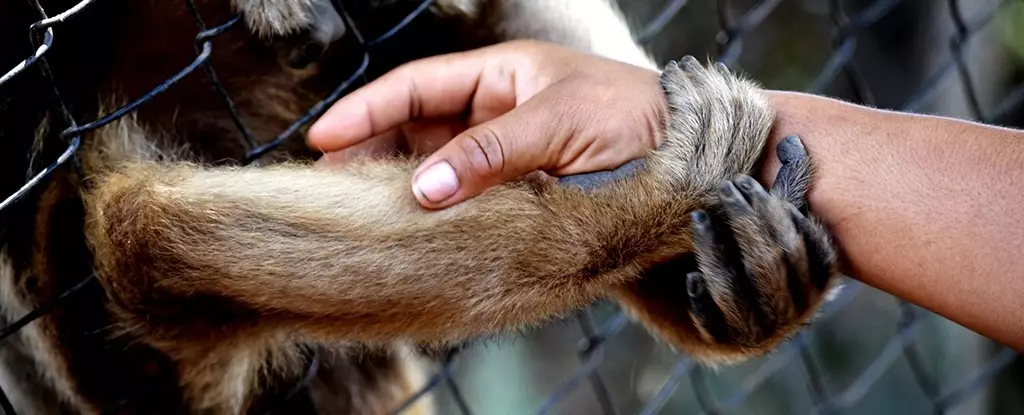The COVID-19 pandemic brought about changes for humans and animals alike. Research conducted in 2022 found that zoo animals, particularly primates, had to make adjustments to their behaviors as crowds of visitors suddenly disappeared. The study focused on bonobos, chimpanzees, western lowland gorillas, and olive baboons, analyzing how their habits changed in the absence of regular visitor interactions.
The closure of Twycross Zoo and Knowsley Safari in the UK due to the pandemic provided researchers with a unique opportunity to observe the behavior of zoo animals without the presence of visitors. This allowed scientists to gain insights into how zoo animals interact and adapt to changes in their environment. The study highlighted the complex nature of primate interactions with visitors and the potential impact on their behavior.
During the period when visitors were absent, the researchers noted significant changes in the behavior of the primates. For instance, bonobos and gorillas spent less time alone when visitors returned to the zoo. Chimpanzees increased their eating and engagement with their enclosures, while olive baboons exhibited less sexual and dominance behavior. These variations in behavior underscored the influence of visitor interactions on the animals’ daily routines.
The researchers acknowledged that the presence of visitors had both positive and negative effects on the zoo animals. While some species appeared more stimulated and engaged when visitors returned, others seemed disrupted or stressed by the crowds. For example, gorillas, known for their sedentary nature, spent less time resting in the presence of visitors, indicating a potential source of disturbance. However, the adaptability of the animals to these changes also suggested their ability to manage disruptions in their environment.
The study emphasized the importance of providing zoo animals with environments that enable them to actively adapt to changes. Zoo animal welfare researcher Ellen Williams highlighted the need for environments that support animals’ behavioral flexibility and well-being. The ability of zoo species to adjust their behavior and enclosure use in response to visitors demonstrated their resilience and adaptability in captivity.
Notably, the researchers identified a threshold for visitor numbers that affected the behavior of olive baboons in the safari park. Beyond a certain point, the animals ceased to show increased activity and interest in visitor cars, indicating a limit to their tolerance for external stimuli. This finding underscored the need for zoos and parks to consider the optimal balance of visitor interactions to prevent potential negative impacts on animal welfare.
Looking ahead, the research team aims to expand their study to include a wider range of species in various zoo and safari park settings. By collecting data over an extended period, researchers hope to gain a more comprehensive understanding of how visitor numbers influence animal behavior. This future research may also explore individual differences among animals and further contribute to the ongoing efforts to enhance animal welfare in captive environments.
The study on the impact of visitor interactions on zoo animals shed light on the complex relationship between animals and human visitors in captive settings. The findings underscored the need for careful consideration of visitor numbers, environmental design, and animal well-being in zoos and parks. By continuing to study and evaluate the effects of visitor interactions on zoo animals, researchers can enhance the quality of care and enrichment provided to captive species.

Leave a Reply